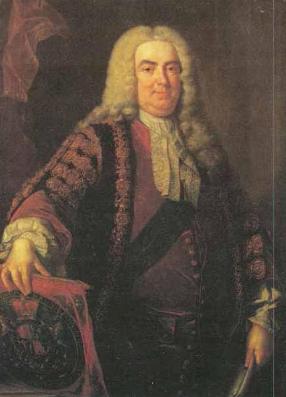- java 快速生成javaBean类
angen2018
javajava
packagecom.angen.util;importjava.io.FileWriter;importjava.io.IOException;importjava.sql.*;importjava.util.ArrayList;importjava.util.List;/***@description:PojoUtil*@date:2022/7/20*/publicclassPojoUtil{
- 详解mybatis的一二级缓存以及缓存失效原因
仰望天花板
缓存数据库mybatisjavamysql
数据库的大部分场景下是从磁盘读取,如果数据从内存进行读取,速度较比磁盘要快得多。但因为内存的容量有限,所以一般只会把使用和查询较多的数据缓存起来,以便快速反应,其他使用率不太多的继续存放在磁盘。mybatis分为一级缓存和二级缓存1.一级缓存一级缓存存放在SqlSqeeion上,默认开启1.1pojo@DatapublicclassRole{privateLongid;privateStringr
- WORD批量转换器MultiDoc Converter
uolian
工作word
WORD批量转换器MultiDocConverterhttps://www.52pojie.cn/thread-1318745-1-1.html可批量将doc、docx等文件格式转成doc、docx、pdf、rtf、txt、html、epub等格式。安装包下载地址:https://wws.lanzouj.com/irvVbiz0pkd最终下载文件打包地址(未作成单文件,不确定是否可以直接使用):h
- MyBatis系统学习(一)——项目结构及其含义
OEC小胖胖
MyBatismybatis学习web后端
1.MyBatis简介MyBatis是一款优秀的持久层框架,它通过SQL映射的方式实现Java对数据库操作的映射,既保留了SQL语句的灵活性,也简化了代码的编写。在一个MyBatis项目中,核心部分主要有:配置文件(mybatis-config.xml)映射文件(Mapper.xml)实体类(Entity/POJO)接口类(Mapper接口)MyBatis会话工厂(SqlSessionFactor
- SpringBoot项目
俺叫啥好嘞
spring系列springspringboot
SpringBoot项目大概分为四层:(1)DAO层:包括XxxMapper.java(数据库访问接口类),XxxMapper.xml(数据库链接实现);(这个命名,有人喜欢用Dao命名,有人喜欢用Mapper,看个人习惯了吧)(2)Bean层:也叫model层,模型层,entity层,实体层,就是数据库表的映射实体类,存放POJO对象;(3)Service层:也叫服务层,业务层,包括XxxSer
- 数据结构OJ作业——队列
nnbs
数据结构数据结构poj队列
POJ3984:http://poj.org/problem?id=3984迷宫,输出最短路径,bfs#include#include#include#includeusingnamespacestd;intmaze[5][5];pairpath[5][5];queue>q;intdx[]={1,-1,0,0};intdy[]={0,0,1,-1};voidbfs(intx,inty){q.pus
- c语言练习:POJ 1005 我想我需要一艘船屋(I Think I Need a Houseboat)
七月初七淮水竹亭~
C语言入门c语言
题目相关信息描述弗雷德·马珀(FredMapper)正在考虑在路易斯安那州购买一些土地来建造他的房子。在调查这片土地的过程中,他了解到,由于密西西比河造成的侵蚀,路易斯安那州实际上每年都在缩小50平方英里。由于弗雷德希望一辈子都住在这所房子里,他需要知道他的土地是否会因侵蚀而消失。在做了更多的研究之后,弗雷德了解到正在失去的土地形成了一个半圆形。这个半圆是以(0,0)为中心的圆的一部分,将圆平分的
- java开发中pojo、model和entity的区别及DTO与VO
leighy
javaspringbootmvc
一、pojo(PlainOrdinaryJavaObject无规则简单Java对象)简单java对象简单的javabean的对象,对应数据库某一张表,表的字段与pojo类的属性都要一一对应?(查阅发现没有具体对pojo描述,有的说是作为业务协作类不需要一一对应)但在实际开发中较少以pojo来对包命名。二、entity(实体类)数据表对应到实体类的映射则类属性与数据库表字段一一对应在实际开发中较多以
- SpringData JPA之Respository接口的使用
OVA_Won
SpringDatamysqljavaspring
SpringDataJPA之Respository接口的使用Respository:最顶层的接口也是标志接口,目的是为了统一所有Repository的类型,且能让组件扫描的时候自动识别。准备工作导入JAR包:别忘了导入Junit测试包,否则后面没法单元测试编写Spring和数据库配置文件applicationContext.xml文件com.OVA.pojojdbc.propertiesjdbc.
- POJ 1062 : 昂贵的聘礼 - 最短路Dijkstra+枚举(难)
bookybooky
图论最短路Dijsktrapojzoj图论
dijkstra处理权值非负情形,最近才开始看最短路。题目大意:(中文题容易理解)大致就是说,最终要得到酋长的许诺,每件物品可能有其他物品(1件)能让此物品价格优惠,你可通过交易获得物品从而以最少金钱达到酋长许诺。交易受到“等级限制”。其中的等级限制处理需要一定的技巧,细节一定要处理好!输入:(单Case输入)第一行两个整数M,N(1>30)-1足够,邻接矩阵用int也足够,并不像DISCUSS中
- 【Mybatis】Web中的数据库操作
科马
java数据库mybatisservletsql
Mybatis工作机制1.加载配置文件:2.创建SqlSessionFactory:3.获取SqlSession:4.获取Mapper接口:5.执行SQL语句:6.SQL语句解析和执行:7.结果映射:8.事务管理:9.关闭SqlSession:10.返回结果:与JDBC对比三个显著特点代码示例1.配置MyBatis2.创建数据库表3.创建POJO类4.编写Mapper接口5.编写SQL映射文件6.
- spring揭秘-概念以BeanFactory介绍
liangxifeng833
本质:Spring框架为POJO提供的各种服务共同组成了Spring的生命之树Paste_Image.pngspring框架为基础,有很多家庭成员,比如(SpringWebFlow,SpringWebServices,SpringSecurity,SpringBatch等等),这些家族成员全部以ApacheLisenceVersion2.0协议发布,共同组成了SpringProjects组合,因为
- SpringBoot项目中使用SpringData-JPA持久化数据
火星刻苦的杏仁
springbootjavamybatis
目录一、什么是JPA二、SpringData-JPA与MybatisPuls的区别三、项目中使用JPAJPA常用注解JPA进阶使用技巧一、什么是JPAJPA是JavaPersistenceAPI的简称,中文名Java持久层API,其设计目标主要是为了简化现有的持久化开发工作和整合ORM技术。简单地说,JPA就是为POJO(PlainOrdinaryJavaObject)提供持久化的标准规范,即将J
- 算法入门篇(八) 之 查找算法
战族狼魂
算法哈希算法
目录一、哈希表哈希函数哈希函数的应用常见的哈希函数线性探测、二次探测、链地址1.线性探测(LinearProbing)2.二次探测(QuadraticProbing)3.链地址法(Chaining)4.总结POJ3349、POJ1840、POJ2002POJ3349-AncientCipherPOJ1840-MaximumNumberPOJ2002-TournamentScheduling二、字符
- Spring AI
java_heartLake
人工智能人工智能springjava
本文介绍Spring的一级项目SpringAI简介:SpringAI是一个用于AI工程的应用程序框架。其目标是将Spring生态系统的设计原则(如可移植性和模块化设计)应用于AI领域,并推动将POJO(PlainOldJavaObjects,简单老式Java对象)作为应用程序的构建块引入到AI领域。主要特性:支持跨AI提供商的便携式API,用于聊天、文本到图像和嵌入模型。同时支持同步和流API选项
- 【iOS安全】iOS安装Alook浏览器
Jouzzy
iOS安全iOS开发ios浏览器
下载Alook的ipa下载地址参考:https://www.52pojie.cn/thread-1725470-1-1.html其中出现的下载链接:https://wwes.lanzouf.com/iyGQ00icergd下载ipa后使用爱思助手安装
- MyBatis注解开发详解
hoypte
mybatis
MyBatis注解开发详解一、前言MyBatis是一个优秀的持久层框架,它支持定制化SQL、存储过程以及高级映射。MyBatis免除了几乎所有的JDBC代码和手动设置参数以及获取结果集。MyBatis可以使用简单的XML或注解来配置和映射原始类型、接口和JavaPOJO(PlainOldJavaObjects,普通的Java对象)为数据库中的记录。在MyBatis中,注解提供了一种更加简洁和直观的
- @Import注解作用
y我见青山多妩媚
java开发语言
@Import注解作用理解springboot自动装配时,发现@SpringBootApplication注解下的@EnableAutoConfiguration注解头上有一个@Import注解。关于这个注解的作用,上网查找后发现理解的不是很明白,于是写了下面的Demo去理解。两个pojo类:publicclassPerson{}publicclassStudent{}测试类@Configurat
- 【spring boot结合rabbit mq 到点执行,可精确到秒】
ljh_learn_from_base
javaspringbootspringbootjava后端java-rabbitmq
【springboot结合rabbitmq到点执行,可精确到秒】创建队列枚举创建自定义的队列消息pojo创建队列和延迟队列发送mq消息接收mq消息DateTimeUtil测试注意点创建队列枚举publicenumQueueEnum{/***各种异步消息频道*/TEST(1,"test","队列频道"),DELAY_TEST(2,"delay_test","延迟延迟频道"),;privateInte
- Eclipse中Run As On Server和Run As Java Application
CAE虚拟与现实
JavaIDE开发环境javaeclipseide
一、名词释义runjavaapplication(作为Java应用程序运行)是运行javamain方法。runonserver是启动一个web应用服务器。二、两者的区别Eclipse中可以创建javaproject也可以创建javawebpoject。javaproject是可以直接在命令行运行,或者直接在Eclipse中运行此时运行是jvm直接调用了main方法。Eclipse中创建的javaw
- 不同编程网站应当注意的点
见合8
比赛总结c++c语言
文章目录引入:洛谷:POJ:C语言:C++:CF:个人建议:补充:引入:小伙伴们有没有遇到过这种情况:到一个新的网站去编程,思路、算法完全正确,提交上去却是WrongAnswer,RuntimeError,ComplieError,TimeLimitExceed。这里,我总结了以下几个网站的注意点:洛谷:link提交时右上角有一个选项为O2优化。这并不可以随便选。可能有些暴力程序开了O2就过了,但
- 阿里java开发手册泰山版_总结
林坰
Javajava数据库mysql
编程规约常量定义不允许任何预先未定义的常量出现在代码中。不要使用一个常量类维护所有的常量,要按常量功能进行归类,分开维护。OOP规约所有的POJO类属性必须使用包装数据类型。RPC方法的返回值和参数必须使用包装数据类型。POJO类是最简单最普通的JAVA对象,内在含义是有一些private的参数作为对象的属性,然后针对每一个参数定义get和set方法访问的接口。【没有从任何类继承、也没有实现任何接
- 【转载】ACM入门 .
dongfan1861
人工智能phpc/c++
初期:一.基本算法:(1)枚举.(poj1753,poj2965)(2)贪心(poj1328,poj2109,poj2586)(3)递归和分治法.(4)递推.(5)构造法.(poj3295)(6)模拟法.(poj1068,poj2632,poj1573,poj2993,poj2996)二.图算法:(1)图的深度优先遍历和广度优先遍历.(2)最短路径算法(dijkstra,bellman-ford,
- 如何下载52pojie、CSDN、简书、Myitmx、博客园的文章?(最新教程)
星梦客
问题记录程序人生
使用的油猴插件,具体怎么安装问一下度娘。我用的火狐,点点点就行了,省事先安装油猴拓展,启用一下Tampermonkey–下载Firefox扩展(zh-CN)在安装插件SaveToPDF脚本安装后,浏览CSDN文章时,博主信息下方会出现“收藏”按钮,52pojie页面,"收藏"按钮在发贴回复旁边,简书页面,左侧悬浮按钮下方,Myitmx页面,顶部最右侧,博客园页面,顶部管理菜单旁边点击收藏会弹出打印
- SpringBoot之基本概念
Daylight629
SpringBootjavaspringspringbootmaventomcat
SpringBoot概念一、什么是SpringSpring是一个开源框架,2003年兴起的一个轻量级的Java开发框架,作者:RodJohnson。Spring是为了解决企业级应用开发的复杂性而创建的,简化开发。可以看我之前的文章关于spring的介绍与使用二、Spring是如何简化Java开发的为了降低Java开发的复杂性,Spring采用了以下4种关键策略:1、基于POJO的轻量级和最小侵入性
- 使用IDEA构建微服务Maven聚合工程保姆级教程
程序喵锅
经验分享intellij-idea微服务maven经验分享学习
本次喵子给大家分享一个通用的聚合工程搭建教程,细致入微、充满人文关怀的保姆级教程,基本上搭建一次后续即可作为通用模版,应用到其它项目里。一、简单了解微服务二、Maven构建聚合工程1.环境说明2.开始构建2.1.创建空的父工程2.2.创建common子工程2.3.创建pojo子工程2.4.创建mapper子工程2.5.创建service子工程2.6.创建apis子工程2.7.工程安装三、总结一、简
- java中实体pojo对于布尔类型属性命名尽量别以is开头,否则 fastjson可能会导致属性读取不到
阿文弟
java开发语言
假如我们有一个场景,就是需要将一个对象以字符串的形式,也就是jsonString存到一个地方,比如mysql,或者redis的String结构。现在有一个实体,我们自己创建的,叫做CusPojo.java有两个属性是布尔类型的,一个属性是有is开头,一个是没有is开头的,我们就可以做个对比。现在我导入fastjson依赖,创建一个CusPojo对象,然后序列化为jsonString,我们打印结果如
- springboot整合RabbitMQ
水宝的滚动歌词
RabbitMQspringbootspringbootrabbitmq
1.Spring-AMQP概念什么是Spring-AMQPSpring框架的AMQP消息解决方案,提供模板化的发送和接收消息的抽象层,提供基于消息驱动的POJO的消息监听等提供不依赖于任何特定的AMQP代理实现或客户端库通用的抽象,最终用户代码将很容易实现更易替换、添加和删除AMQP,因为它可以只针对抽象层来开发总之就是提高我们的框架整合消息队列的效率,springboot为更方便开发Rabbit
- Spring Boot 笔记 016 创建接口_删除文章分类
机器人迈克猫
SpringBootspringboot笔记后端
1.1.1Controllerpackagecom.geji.controller;importcom.geji.pojo.Category;importcom.geji.pojo.Result;importcom.geji.service.CategoryService;importorg.springframework.beans.factory.annotation.Autowired;im
- SpringMVC 的参数绑定之list集合、Map
lvpflv
SpringMVClistmvcspring
标签中name属性的值就是pojo类的属性名参数绑定4list[对象]教师编号:教师姓名:map教师编号:教师姓名:
- java观察者模式
3213213333332132
java设计模式游戏观察者模式
观察者模式——顾名思义,就是一个对象观察另一个对象,当被观察的对象发生变化时,观察者也会跟着变化。
在日常中,我们配java环境变量时,设置一个JAVAHOME变量,这就是被观察者,使用了JAVAHOME变量的对象都是观察者,一旦JAVAHOME的路径改动,其他的也会跟着改动。
这样的例子很多,我想用小时候玩的老鹰捉小鸡游戏来简单的描绘观察者模式。
老鹰会变成观察者,母鸡和小鸡是
- TFS RESTful API 模拟上传测试
ronin47
TFS RESTful API 模拟上传测试。
细节参看这里:https://github.com/alibaba/nginx-tfs/blob/master/TFS_RESTful_API.markdown
模拟POST上传一个图片:
curl --data-binary @/opt/tfs.png http
- PHP常用设计模式单例, 工厂, 观察者, 责任链, 装饰, 策略,适配,桥接模式
dcj3sjt126com
设计模式PHP
// 多态, 在JAVA中是这样用的, 其实在PHP当中可以自然消除, 因为参数是动态的, 你传什么过来都可以, 不限制类型, 直接调用类的方法
abstract class Tiger {
public abstract function climb();
}
class XTiger extends Tiger {
public function climb()
- hibernate
171815164
Hibernate
main,save
Configuration conf =new Configuration().configure();
SessionFactory sf=conf.buildSessionFactory();
Session sess=sf.openSession();
Transaction tx=sess.beginTransaction();
News a=new
- Ant实例分析
g21121
ant
下面是一个Ant构建文件的实例,通过这个实例我们可以很清楚的理顺构建一个项目的顺序及依赖关系,从而编写出更加合理的构建文件。
下面是build.xml的代码:
<?xml version="1
- [简单]工作记录_接口返回405原因
53873039oycg
工作
最近调接口时候一直报错,错误信息是:
responseCode:405
responseMsg:Method Not Allowed
接口请求方式Post.
- 关于java.lang.ClassNotFoundException 和 java.lang.NoClassDefFoundError 的区别
程序员是怎么炼成的
真正完成类的加载工作是通过调用 defineClass来实现的;
而启动类的加载过程是通过调用 loadClass来实现的;
就是类加载器分为加载和定义
protected Class<?> findClass(String name) throws ClassNotFoundExcept
- JDBC学习笔记-JDBC详细的操作流程
aijuans
jdbc
所有的JDBC应用程序都具有下面的基本流程: 1、加载数据库驱动并建立到数据库的连接。 2、执行SQL语句。 3、处理结果。 4、从数据库断开连接释放资源。
下面我们就来仔细看一看每一个步骤:
其实按照上面所说每个阶段都可得单独拿出来写成一个独立的类方法文件。共别的应用来调用。
1、加载数据库驱动并建立到数据库的连接:
Html代码
St
- rome创建rss
antonyup_2006
tomcatcmsxmlstrutsOpera
引用
1.RSS标准
RSS标准比较混乱,主要有以下3个系列
RSS 0.9x / 2.0 : RSS技术诞生于1999年的网景公司(Netscape),其发布了一个0.9版本的规范。2001年,RSS技术标准的发展工作被Userland Software公司的戴夫 温那(Dave Winer)所接手。陆续发布了0.9x的系列版本。当W3C小组发布RSS 1.0后,Dave W
- html表格和表单基础
百合不是茶
html表格表单meta锚点
第一次用html来写东西,感觉压力山大,每次看见别人发的都是比较牛逼的 再看看自己什么都还不会,
html是一种标记语言,其实很简单都是固定的格式
_----------------------------------------表格和表单
表格是html的重要组成部分,表格用在body里面的
主要用法如下;
<table>
&
- ibatis如何传入完整的sql语句
bijian1013
javasqlibatis
ibatis如何传入完整的sql语句?进一步说,String str ="select * from test_table",我想把str传入ibatis中执行,是传递整条sql语句。
解决办法:
<
- 精通Oracle10编程SQL(14)开发动态SQL
bijian1013
oracle数据库plsql
/*
*开发动态SQL
*/
--使用EXECUTE IMMEDIATE处理DDL操作
CREATE OR REPLACE PROCEDURE drop_table(table_name varchar2)
is
sql_statement varchar2(100);
begin
sql_statement:='DROP TABLE '||table_name;
- 【Linux命令】Linux工作中常用命令
bit1129
linux命令
不断的总结工作中常用的Linux命令
1.查看端口被哪个进程占用
通过这个命令可以得到占用8085端口的进程号,然后通过ps -ef|grep 进程号得到进程的详细信息
netstat -anp | grep 8085
察看进程ID对应的进程占用的端口号
netstat -anp | grep 进程ID
&
- 优秀网站和文档收集
白糖_
网站
集成 Flex, Spring, Hibernate 构建应用程序
性能测试工具-JMeter
Hmtl5-IOCN网站
Oracle精简版教程网站
鸟哥的linux私房菜
Jetty中文文档
50个jquery必备代码片段
swfobject.js检测flash版本号工具
- angular.extend
boyitech
AngularJSangular.extendAngularJS API
angular.extend 复制src对象中的属性去dst对象中. 支持多个src对象. 如果你不想改变一个对象,你可以把dst设为空对象{}: var object = angular.extend({}, object1, object2). 注意: angular.extend不支持递归复制. 使用方法: angular.extend(dst, src); 参数:
- java-谷歌面试题-设计方便提取中数的数据结构
bylijinnan
java
网上找了一下这道题的解答,但都是提供思路,没有提供具体实现。其中使用大小堆这个思路看似简单,但实现起来要考虑很多。
以下分别用排序数组和大小堆来实现。
使用大小堆:
import java.util.Arrays;
public class MedianInHeap {
/**
* 题目:设计方便提取中数的数据结构
* 设计一个数据结构,其中包含两个函数,1.插
- ajaxFileUpload 针对 ie jquery 1.7+不能使用问题修复版本
Chen.H
ajaxFileUploadie6ie7ie8ie9
jQuery.extend({
handleError: function( s, xhr, status, e ) {
// If a local callback was specified, fire it
if ( s.error ) {
s.error.call( s.context || s, xhr, status, e );
}
- [机器人制造原则]机器人的电池和存储器必须可以替换
comsci
制造
机器人的身体随时随地可能被外来力量所破坏,但是如果机器人的存储器和电池可以更换,那么这个机器人的思维和记忆力就可以保存下来,即使身体受到伤害,在把存储器取下来安装到一个新的身体上之后,原有的性格和能力都可以继续维持.....
另外,如果一
- Oracle Multitable INSERT 的用法
daizj
oracle
转载Oracle笔记-Multitable INSERT 的用法
http://blog.chinaunix.net/uid-8504518-id-3310531.html
一、Insert基础用法
语法:
Insert Into 表名 (字段1,字段2,字段3...)
Values (值1,
- 专访黑客历史学家George Dyson
datamachine
on
20世纪最具威力的两项发明——核弹和计算机出自同一时代、同一群年青人。可是,与大名鼎鼎的曼哈顿计划(第二次世界大战中美国原子弹研究计划)相 比,计算机的起源显得默默无闻。出身计算机世家的历史学家George Dyson在其新书《图灵大教堂》(Turing’s Cathedral)中讲述了阿兰·图灵、约翰·冯·诺依曼等一帮子天才小子创造计算机及预见计算机未来
- 小学6年级英语单词背诵第一课
dcj3sjt126com
englishword
always 总是
rice 水稻,米饭
before 在...之前
live 生活,居住
usual 通常的
early 早的
begin 开始
month 月份
year 年
last 最后的
east 东方的
high 高的
far 远的
window 窗户
world 世界
than 比...更
- 在线IT教育和在线IT高端教育
dcj3sjt126com
教育
codecademy
http://www.codecademy.com codeschool
https://www.codeschool.com teamtreehouse
http://teamtreehouse.com lynda
http://www.lynda.com/ Coursera
https://www.coursera.
- Struts2 xml校验框架所定义的校验文件
蕃薯耀
Struts2 xml校验Struts2 xml校验框架Struts2校验
>>>>>>>>>>>>>>>>>>>>>>>>>>>>>>>>>>>>>>
蕃薯耀 2015年7月11日 15:54:59 星期六
http://fa
- mac下安装rar和unrar命令
hanqunfeng
mac
1.下载:http://www.rarlab.com/download.htm 选择
RAR 5.21 for Mac OS X 2.解压下载后的文件 tar -zxvf rarosx-5.2.1.tar 3.cd rar sudo install -c -o $USER unrar /bin #输入当前用户登录密码 sudo install -c -o $USER rar
- 三种将list转换为map的方法
jackyrong
list
在本文中,介绍三种将list转换为map的方法:
1) 传统方法
假设有某个类如下
class Movie {
private Integer rank;
private String description;
public Movie(Integer rank, String des
- 年轻程序员需要学习的5大经验
lampcy
工作PHP程序员
在过去的7年半时间里,我带过的软件实习生超过一打,也看到过数以百计的学生和毕业生的档案。我发现很多事情他们都需要学习。或许你会说,我说的不就是某种特定的技术、算法、数学,或者其他特定形式的知识吗?没错,这的确是需要学习的,但却并不是最重要的事情。他们需要学习的最重要的东西是“自我规范”。这些规范就是:尽可能地写出最简洁的代码;如果代码后期会因为改动而变得凌乱不堪就得重构;尽量删除没用的代码,并添加
- 评“女孩遭野蛮引产致终身不育 60万赔偿款1分未得”医腐深入骨髓
nannan408
先来看南方网的一则报道:
再正常不过的结婚、生子,对于29岁的郑畅来说,却是一个永远也无法实现的梦想。从2010年到2015年,从24岁到29岁,一张张新旧不一的诊断书记录了她病情的同时,也清晰地记下了她人生的悲哀。
粗暴手术让人发寒
2010年7月,在酒店做服务员的郑畅发现自己怀孕了,可男朋友却联系不上。在没有和家人商量的情况下,她决定堕胎。
12月5日,
- 使用jQuery为input输入框绑定回车键事件 VS 为a标签绑定click事件
Everyday都不同
jspinput回车键绑定clickenter
假设如题所示的事件为同一个,必须先把该js函数抽离出来,该函数定义了监听的处理:
function search() {
//监听函数略......
}
为input框绑定回车事件,当用户在文本框中输入搜索关键字时,按回车键,即可触发search():
//回车绑定
$(".search").keydown(fun
- EXT学习记录
tntxia
ext
1. 准备
(1) 官网:http://www.sencha.com/
里面有源代码和API文档下载。
EXT的域名已经从www.extjs.com改成了www.sencha.com ,但extjs这个域名会自动转到sencha上。
(2)帮助文档:
想要查看EXT的官方文档的话,可以去这里h
- mybatis3的mapper文件报Referenced file contains errors
xingguangsixian
mybatis
最近使用mybatis.3.1.0时无意中碰到一个问题:
The errors below were detected when validating the file "mybatis-3-mapper.dtd" via the file "account-mapper.xml". In most cases these errors can be d
 The ministers of the cabinet were quite upset by the message from the Chief of Security stating that they would all have to change the four-digit room numbers on their offices.
The ministers of the cabinet were quite upset by the message from the Chief of Security stating that they would all have to change the four-digit room numbers on their offices.

